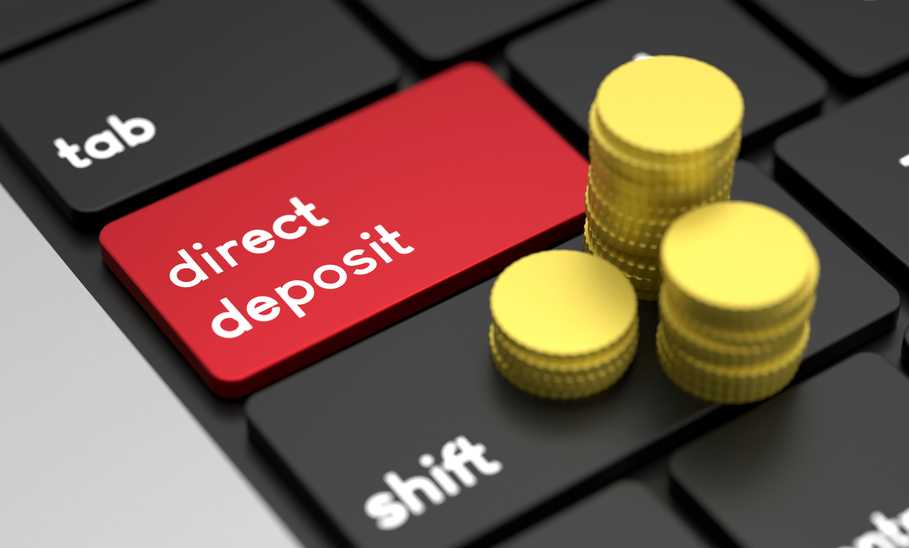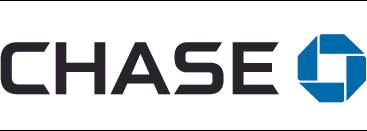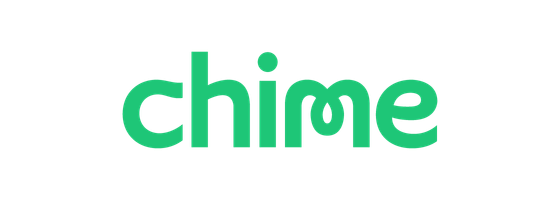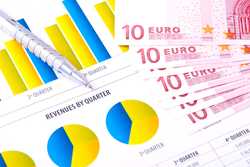Direct deposit is a payment method that's administered electronically between financial institutions. The payer will issue a direct deposit or electronic payment transaction that will automatically transfer to the recipient's account at a bank, credit union or other financial institution that accepts direct deposits. There's no need for the recipient to receive a physical check or cash and deposit the amount themselves. This convenience is why many employers and workers prefer direct deposit.
How direct deposit works
Your employer or a payer (such as the IRS for your tax refunds) will first ask you, the payee, for your banking information, including your bank routing and account number. This information is for the purposes of being able to pay you. Your employer will most likely ask you for your direct deposit information during the onboarding process. You can choose to have the money deposited into one account or multiple accounts—in some cases you can indicate the percentage you want deposited into each account.
Once the payer has this information, it will input it into either their payroll or banking software and schedule the direct deposit on their payment schedule. For example, if your employer pays on the 30th day of each month, the payroll or finance department will send payment information to their bank. Then the payment will be pushed out electronically—typically through the ACH (automated clearing house) network—on the 30th.
Direct deposit pros and cons
Pros:
- Offers more convenient and faster access to funds.
- Can cost less than other types of payment methods.
- Doesn't rely on paper checks.
- Employers or payers can automatically schedule payments.
- Lowers the risk of lost or stolen paper checks.
Cons:
- Requires payee to have a bank account.
- Cybersecurity attacks or phishing can compromise transactions.
Direct deposit uses
While the most common way people associate direct deposit is through their employer, there are many other ways you or other payers can use this method of payment:
- Social Security payments: All Social Security payments are now being paid by direct deposit as a more cost-effective way to pay out benefits. If you don't have a bank account, you can still receive payments via a prepaid debit card.
- Working as an independent contractor: Just because you're not an employee doesn't mean you can't receive direct deposit. Many companies will send their contractors payments through this method as it's typically more convenient. Instead of being paid on a regular schedule and having taxes withheld, contractors are paid based on the agreed payment terms.
- Getting tax refunds: The fastest method to receiving your tax refund is through direct deposit, according to the IRS. In most cases, you can receive your refund in around 21 days once your tax return is approved.
- Paying child support: Though there may be different payment methods, using direct deposit to pay child support is a more convenient way and there may be little to no fees to switch to this option.
- Paying bills: Yes, you can pay bills by scheduling an electronic payment or through the bill-pay option if your financial institution offers one.
What to consider when using direct deposit
The main benefits of direct deposit are the speed and convenience—it could explain why it's one of the most popular payment methods. Instead of having to pay to write a check and send it to payees, payers can schedule a payment on their payroll software or by logging into their financial institution. Recipients don't have to worry about losing a paper check or take the time to deposit it, whether in person at their local branch or through their bank’s mobile app.
Keep in mind that not everyone can send and receive direct deposit payments if they don’t have a bank account. That’s why it’s important to still have other payment methods just in case.
Where you can receive direct-deposit payments
If you’re considering opening a new bank account to receive direct deposits, know that most financial institutions have this feature. And some offer extra perks to account holders who arrange to receive direct deposits.
Here are some checking accounts you can consider as you’re doing your research:
|
| | | |
| | | Depends on checking account |
| | | |
| | | |
Ally Spending
Ally’s checking account called Ally Spending, has no monthly maintenance fees or minimum account balance requirements to earn interest. Account holders can send and receive direct deposit payments through their online banking or mobile platform. If you set up your account to receive direct deposit payments, you can get them up to two days earlier.
Chase Bank
Chase Total Checking®
Monthly fee
$12 ($0 with qualifying activities); $34 NSF Fee
Like Ally, you can receive direct deposit payments up to two days earlier. This large financial institution offers a variety of checking accounts, each with its own interest rate, monthly fees, and other features. However, you can send and receive direct deposits with all of them.
Chime
Aside from receiving direct-deposit payments earlier, you can take advantage of Chime’s automatic saving feature. Every time you use the Chime debit card, the financial institution will round up the purchase amount to the nearest dollar and deposit it into a dedicated savings account.
Lili
Business owners
Business owners
Lili Business Checking
APY*
3.00% on savings account
This business banking account offers features such as bookkeeping and invoicing. You can send and receive direct deposit with all their banking products, though some may change a monthly maintenance fee.
When should you use direct deposit?
You can use direct deposit if you're not interested in paying bills or having other people use paper checks. Same goes for receiving your paycheck, especially if you're afraid that a check could get lost or stolen. Plus, since you can schedule direct-deposit payments, you can do so at your own time and not have to worry whether a paper check payment will get there on time. Even better, if you want to get your paycheck, refund, or funds faster from your payer, many banks offer those who use direct deposit the opportunity to receive payment up to two days faster.
How long does direct deposit take?
Although a direct-deposit transfer is almost instantaneous, it may take several days for it to land in your account. In most cases, you can access the cash within one to three business days. However, depending on your financial institution, you may be able to receive payment faster.
How to set up direct deposit
In most cases, setting up direct deposit is the same across all payers:
- Fill out a direct deposit form: You’ll need to do so if the payer (such as your employer) asks you to do so. Information includes your name, address, and banking information.
- Provide banking information: It should be on the form, but pertinent banking details include your bank routing and account number. In some cases you may be asked to provide the bank’s name and your branch address.
- Indicate how much you want deposited: You can choose to have the entire payment amount deposited into one bank account, or several. If you choose the latter, indicate the amount or percentage you want deposited into each bank account.
- Provide a blank check: Some employers may ask you to provide a blank check to confirm the information you’ve provided is correct. To be safe, write the word “VOID” in large letters across the check.
- Submit your completed form: Once you double-check that all the information you’ve provided is correct, submit the form to the payer.
TIME Stamp: Direct deposit saves time and money
Direct deposit is an effective and convenient way to send and receive payments. To use it, of course, the payer or payee both need a bank or other account that offers this feature. Acquire this and you can save significant time and money compared to payment methods such as paying in cash or via a paper check.
Frequently asked questions (FAQs)
How do you void a check for direct deposit?
You can write the words “VOID” across a blank check when giving it to the payer to set up direct deposit. This ensures nobody can repurpose that check for their own gain
How long does it take to get unemployment via direct deposit?
Depending on which state is providing your benefits, it can take anywhere from several days to several weeks to start getting unemployment payments via direct deposit.
How long does it take Social Security to change my direct deposit?
It can typically take 30 to 60 days for any changes to your direct deposit information to take effect.
Can I receive direct deposit without a bank account?
You can’t receive a direct deposit unless you have an account with a bank, credit union or other financial institution that accepts direct deposit (as some brokerage accounts do).
The Lili Visa® Debit Cards is issued by Sunrise Banks N.A., Member FDIC, pursuant to a license from Visa U.S.A. Inc.
Lili is a financial technology company, not a bank. Banking services provided by Sunrise Banks N.A., Member FDIC.
The information presented here is created by TIME Stamped and overseen by TIME editorial staff. To learn more, see our About Us page.









